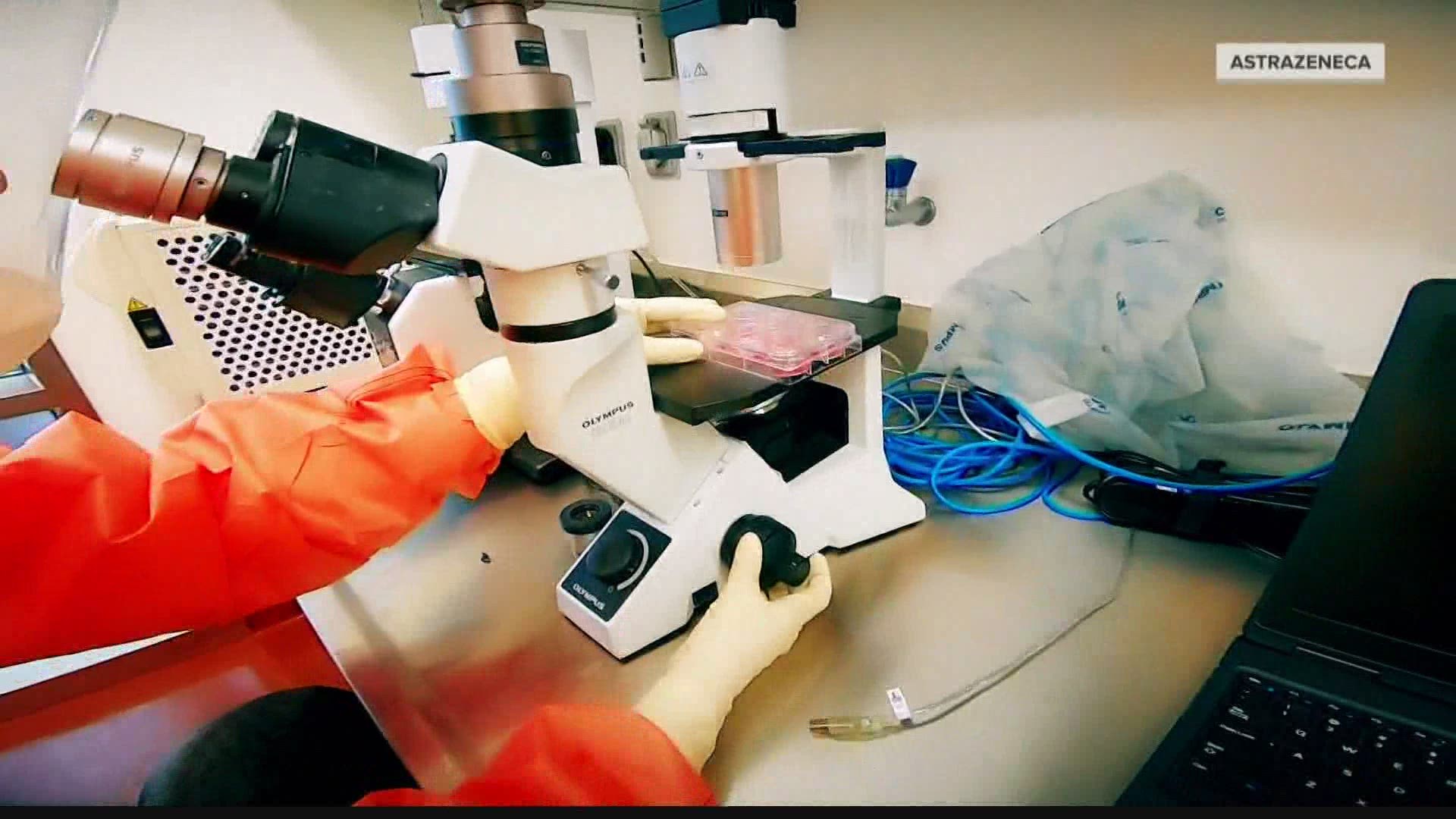INDIANAPOLIS — IU School of Medicine is enrolling 1,500 patients in a study to determine if a potential coronavirus vaccine made by AstraZeneca is safe and effective.
So far, 200 people have enrolled, and another 200 are in the pipeline.
Dr. Cynthia Brown, the lead researcher in the study, said she's impressed with enrollment so far.
"Recruitment is not a problem," Brown said. "I thought it would be harder to find participants."
Initially AstraZeneca planned for 30,000 Americans to participate in the AZD1222 COVID-19 vaccine study. That number has now increased to 40,000. The study will look into how well the investigational vaccine works for the prevention of COVID-19, the disease caused by the new coronavirus.
Participation in the study is by invitation only. If you are interested in enrolling in the IU Health study, you must register for consideration. The first step is to create a volunteer profile with All IN for Health.
To qualify, you must be 18 years old and not have had a COVID-19 diagnosis. With enrollment, you agree to participate in the screening, treatment, and follow-up periods that will take about two years. These will require multiple visits to the University Hospital and IU Academic Medical Center, which will be reimbursed at $100 in person and $25 for virtual visits.
If you are enrolled, you will be randomly assigned to receive two injections of either the investigational vaccine or a placebo, four weeks apart. Researchers say there is twice as much chance of receiving the vaccine than the placebo.
So far, all 200 enrollees at the IU School of Medicine site have received just one shot, and in general, most side effects are considered mild. They include fever and soreness at the injection site, Brown said in an update Tuesday. Brown noted one advantage of the AstraZeneca vaccine is that it requires routine refrigeration, whereas the Pfizer and Moderna vaccines require more sophisticated Arctic temperatures and freezing requirements, respectively.
The IU School of Medicine study does have a focus on diversity in participants. So far, 9 percent are Black, 16 percent are Hispanic and 15 percent are 65 or older. Mia McLendon is a 43-year-old Black mother of two children from Carmel who understands the challenges of recruiting minorities for research studies.
"I have close friends, even my husband is very reluctant about taking a shot," McLendon said. "I'm just hoping that...I can be that little cheerleader to kind of help other people feel comfortable about getting the shot. I've only received one shot and had no complications. There were no issues so far."
Another study participant is 79-year-old Joe Morris of Bloomington.
"I feel that this is the very thing that a person of my age can do to help change things and get children — my grandchildren — back to school and be able to enjoy the things I've always taken for granted," Morris said. "I want to get back to the gym, lunch, movies, and most of all travel. At 79, I have a few years left, but not many, and I want to enjoy them."
AstraZeneca put the COVID-19 vaccine trial on hold in September after a volunteer in the UK had an unexplained illness.
For more information on potentially joining the trial, click here.

